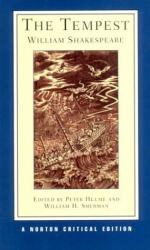|
This section contains 9,210 words (approx. 31 pages at 300 words per page) |

|
Barbara Fuchs, Stanford University
It is an axiom of contemporary criticism that The Tempest is a play about the European colonial experience in America. While this perspective has generated enormously enriched readings of the play, it runs the risk of obscuring the complicated nuances of colonial discourses in the early seventeenth century. When is America not America? When it is Ireland, or North Africa, or Europe itself, or the no-man's-land (really every man's desired land) of the Mediterranean in-between. Just as the formal literary elements of a text—metaphors, puns, patterns—may signify in multiple ways, context, too, may be polysemous. By exploring other contexts for the insistent colonial concerns of Shakespeare's island play, I hope to show how a multiple historical interpretation can unpack the condensed layers of colonialist ideology. This type of reading depends not only on recent Tempest criticism—what one might call the American...
|
This section contains 9,210 words (approx. 31 pages at 300 words per page) |

|


